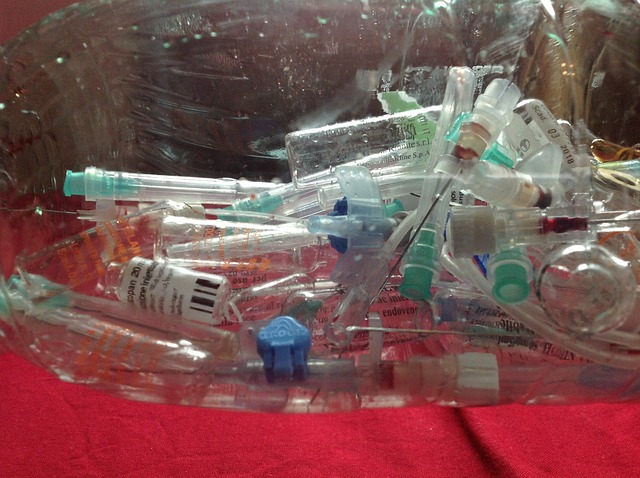Navigating Certified Medical Record Translations: UK Compliance and Best Practices
The article emphasizes the critical function of certified medical record translation services in the UK, which are vital for non-English speaking patients within the NHS to receive high-quality, safe healthcare. These translations must adhere to pre…….

The article emphasizes the critical function of certified medical record translation services in the UK, which are vital for non-English speaking patients within the NHS to receive high-quality, safe healthcare. These translations must adhere to precise and authentic standards to ensure healthcare professionals fully understand a patient's medical history, enabling informed decision-making and maintaining care continuity. Certified translators, accredited by bodies like the Institute of Translation and Interpreting (ITI) or the Chartered Institute of Linguists (CIOL), are required due to their specialized knowledge in both language and medical terminology. They follow strict legal standards, including GDPR, to protect patient data while providing accurate translations accepted by UK healthcare providers for various purposes. The process involves a signed statement from the translator attesting to the translation's accuracy and their qualifications, which serves as a legal document confirming the authenticity of the medical records. Translation services in the UK must meet the guidelines set by Professional Oversight Bodies (POBs) and the MHRA, ensuring that translated documents are accurate to prevent misinterpretation of critical medical data. This high standard of translation is crucial for maintaining professionalism, integrity, and patient confidentiality within the healthcare system, emphasizing the role of Medical Record Translation UK in overcoming language barriers and enhancing patient care outcomes.
When navigating the complexities of healthcare within the UK, particularly for patients and practitioners who require medical record translations, the necessity of certified translations becomes paramount. This article delves into the critical role of medical record translation services in the UK healthcare sector, elucidating the standards and processes that ensure accuracy and compliance with UK regulations. From understanding the importance of certified translations to grasping the best practices for medical record translation, this guide is an indispensable resource for anyone involved in the cross-cultural exchange of sensitive health information. Medical Record Translation UK services are not just a legal requirement but also a cornerstone of patient care and communication, transcending language barriers with precision and integrity.
- Understanding the Necessity of Certified Medical Record Translations in the UK
- Navigating the Process and Standards for Medical Record Translation Certification in the UK
- Best Practices and Key Considerations for Medical Record Translation Services in the UK Healthcare Sector
Understanding the Necessity of Certified Medical Record Translations in the UK

When patients from non-English speaking countries move to the UK for medical treatment or reside here while requiring ongoing healthcare services, the necessity for certified medical record translation arises. The UK’s National Health Service (NHS) must ensure that patient care is delivered effectively and safely, which includes having a comprehensive understanding of each patient’s medical history. Certified translations of medical records are critical in such scenarios to facilitate accurate and informed decision-making by healthcare professionals. These translations are not merely linguistic equivalents but are certified to confirm the translated content’s authenticity and reliability. The certification process, typically performed by professional translation services that adhere to the UK’s legal standards, guarantees that the medical record translation UK is an accurate representation of the original documents. This is paramount for continuity of care and for adhering to the stringent data protection laws that govern patient information in the UK. Consequently, whether for immigration purposes, applying for NHS services, or seeking private healthcare, certified translations of medical records are indispensable, ensuring that patients receive the best possible care without language being a barrier.
Navigating the Process and Standards for Medical Record Translation Certification in the UK

Navigating the process of obtaining certified translations for medical records in the UK necessitates a clear understanding of the legal requirements and standards set forth by relevant authorities. Medical record translation in the UK must adhere to stringent guidelines to ensure accuracy and compliance with data protection laws, such as the General Data Protection Regulation (GDPR). The UK’s National Health Service (NHS) and other medical institutions require that all foreign-language medical records be accurately translated and certified by a professional translator who is accredited by authoritative bodies, like the Institute of Translation and Interpreting (ITI) or the Chartered Institute of Linguists (CIOL). These translators must not only possess specialized knowledge in both the source and target languages but also a comprehensive understanding of medical terminology. The certification process involves the translator providing a signed statement confirming the translation’s accuracy and completeness, along with their professional credentials. This certified document then serves as a legal testament to the authenticity of the medical records, facilitating their acceptance by UK healthcare providers for patient care, insurance claims, or legal proceedings.
In addition to the translator’s certification, medical record translation services in the UK must meet the standards set by the relevant regulatory bodies. These include the Professional Oversight Bodies (POBs) and the UK’s Medical and Healthcare Products Regulatory Agency (MHRA). The translations must be precise to prevent misinterpretation of patient history, medication information, or any other critical medical data. The process ensures that healthcare professionals can rely on the translated documents, making informed decisions about patient care. It is imperative for translation agencies and individual translators to maintain a high level of professionalism and integrity throughout the translation and certification process to uphold the trust in the UK’s healthcare system and protect patient confidentiality.
Best Practices and Key Considerations for Medical Record Translation Services in the UK Healthcare Sector

In the UK healthcare sector, the accuracy and confidentiality of medical record translation are paramount. Best practices for medical record translation services emphasize the need for translators who are not only proficient in the relevant languages but also well-versed in medical terminology. This ensures that the translated records maintain their original meaning and context. Certified translations adhere to the stringent standards set by the UK’s National Health Service (NHS) and its governing bodies, such as the Information Governance Alliance (IGA). Translators must possess the appropriate certifications and follow a structured process that includes a thorough review of the source material, a precise translation, and a final verification step. This process minimizes errors and ensures compliance with data protection laws like the General Data Protection Regulation (GDPR).
Key considerations for medical record translation services in the UK extend beyond linguistic expertise. They include adherence to legal requirements, such as the UK’s Equality Act 2010, which mandates that patients have access to information in a language they understand. Additionally, translators must navigate the nuances of different dialects and regional variations within languages. The use of technology, such as translation memory software and secure data handling protocols, is also crucial to maintain the integrity and confidentiality of patient information. By integrating these best practices and considerations, medical record translation services in the UK can effectively support multilingual patients, thereby enhancing patient care and promoting equitable access to healthcare information.
In conclusion, the imperative nature of certified medical record translations within the UK’s healthcare sector is paramount for effective patient care and inter-professional communication. The meticulous process of ensuring these translations adhere to the stringent certification standards set forth by UK authorities is crucial for maintaining patient confidentiality and data integrity. By adhering to the best practices outlined in this article, translation services can provide reliable, accurate, and culturally competent translations that uphold the high standards expected within the UK’s medical domain. Healthcare providers and patients alike benefit from these translations, which facilitate better health outcomes for a diverse patient population. Medical Record Translation UK services play a pivotal role in this ecosystem, ensuring that language barriers do not impede healthcare delivery or patient understanding.






